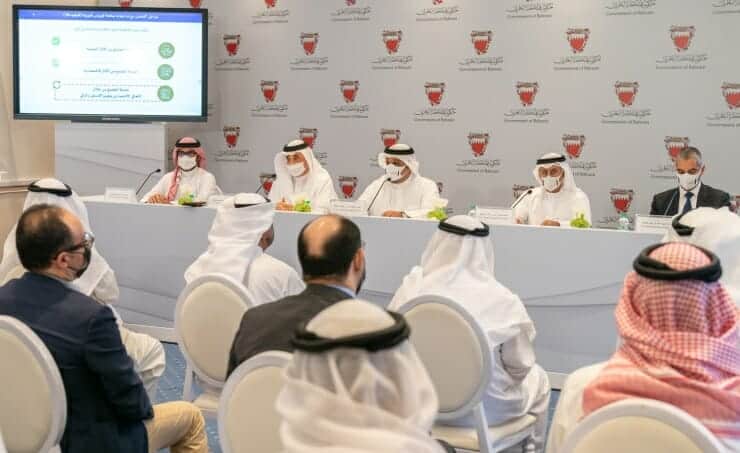Bahrain on Sunday, October 31, announced a new national growth and fiscal balance plan to boost its economy, official sources have said.
The multi-year plan represents one of Bahrain’s largest economic reform programs, said the sources.
It aims to enhance the economy’s long-term competitiveness and support the post-Covid-19 recovery.
The new five-pillar plan apparently aligns with Bahrain’s Economic Vision 2030 and its intention to achieve net-zero carbon emissions by 2060.
For starters, it is said to include a new labor market reform plan, that encompasses a long-term National Labor Market Strategy.
It also reportedly envisions a review of labor fees, and a new Tamkeen Strategy — Tamkeen being Bahrain’s public authority which supports the development of the private sector — to continue upskilling the Bahraini workforce.
The program apparently aims to create 20,000 Bahraini jobs and train 10,000 Bahrainis annually until 2024.
The second part is a regulatory reform package, including simplifying the process of business licenses approval procedures, the launch of a new Government Land Bank, an online portal to showcase investment opportunities, launching an online portal to digitize and simplify urban planning related services, and the launch of a new residency permit program to attract talent and investors.
The package aims to support $2.5 billion of Foreign Direct Investment or FDI by 2023.
The third is a Strategic Projects Plan that envisions catalyzing over $30 billion of investments in strategic projects and creating new industrial investment areas across Bahrain.
The fourth is a plan for priority sectors. As part of it, new stratagem will reportedly be implemented across oil and gas, tourism, logistics, financial services, telecommunications, IT and digital economy, and the manufacturing sectors.
The strategies are expected to support an annual growth of 5 percent in the non-oil sector by 2022.
The last one is an updating of the fiscal balance program Update, which is expected to see eight new fiscal reform workstreams.
These are expected to include reducing recurrent non-manpower expenditure, reducing project spend, reducing manpower expenditure, streamlining the distribution of cash subsidies to citizens, increasing government-owned entities’ annual contributions, adjusting commodities prices and prices of services provided to companies, introducing new government services revenue initiatives, and a VAT increase to 10 percent.
The program is expected to balance Bahrain’s budget by 2024, compared to the pre-Covid-19 target of 2022.
Following the announcement, Bahrain’s Minister of Finance and National Economy Shaikh Salman bin Khalifa Al Khalifa was quoted by the official sources as saying: “This comprehensive economic and fiscal plan is an investment in our nation’s people, our businesses, and the future of Bahrain.”







